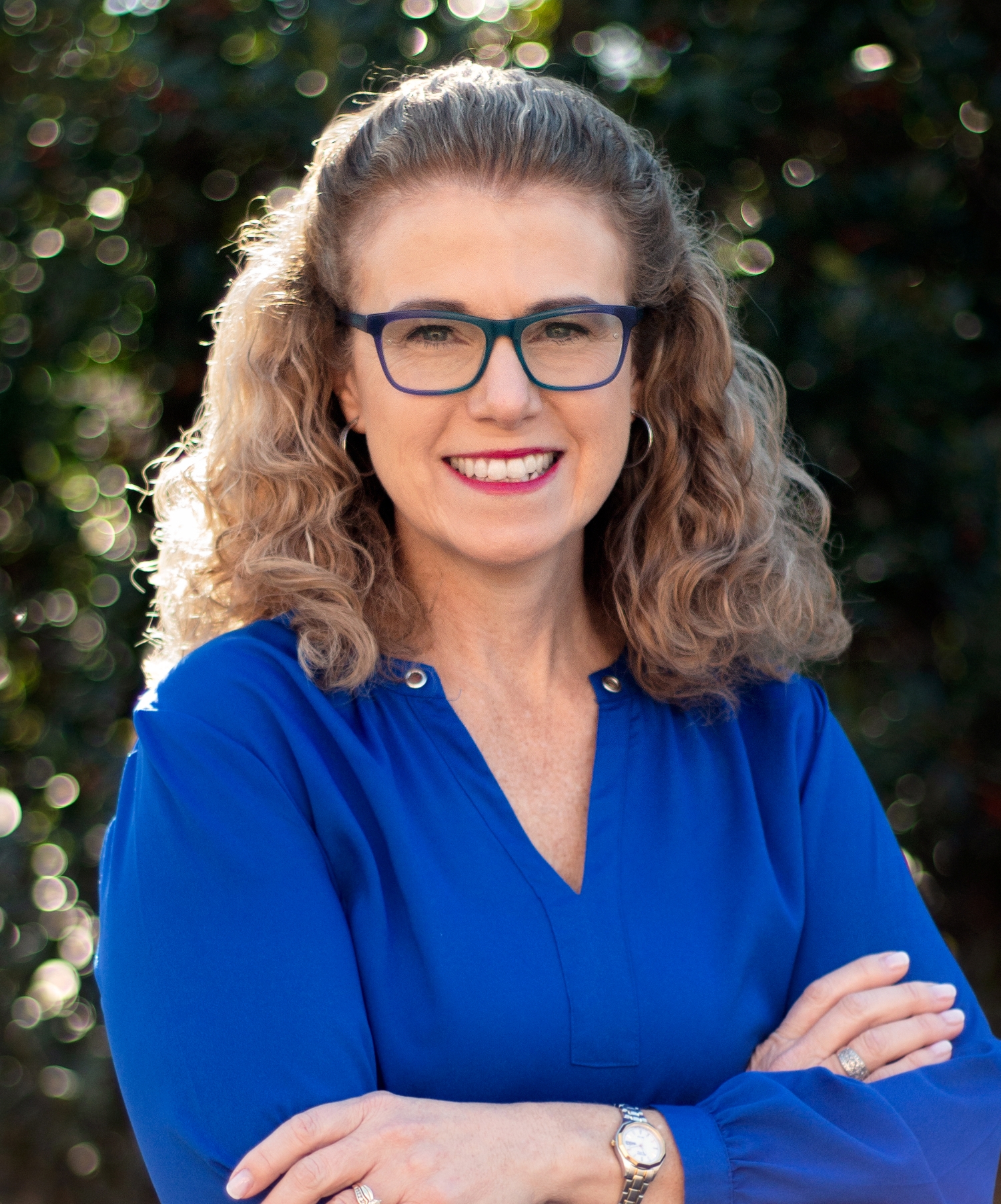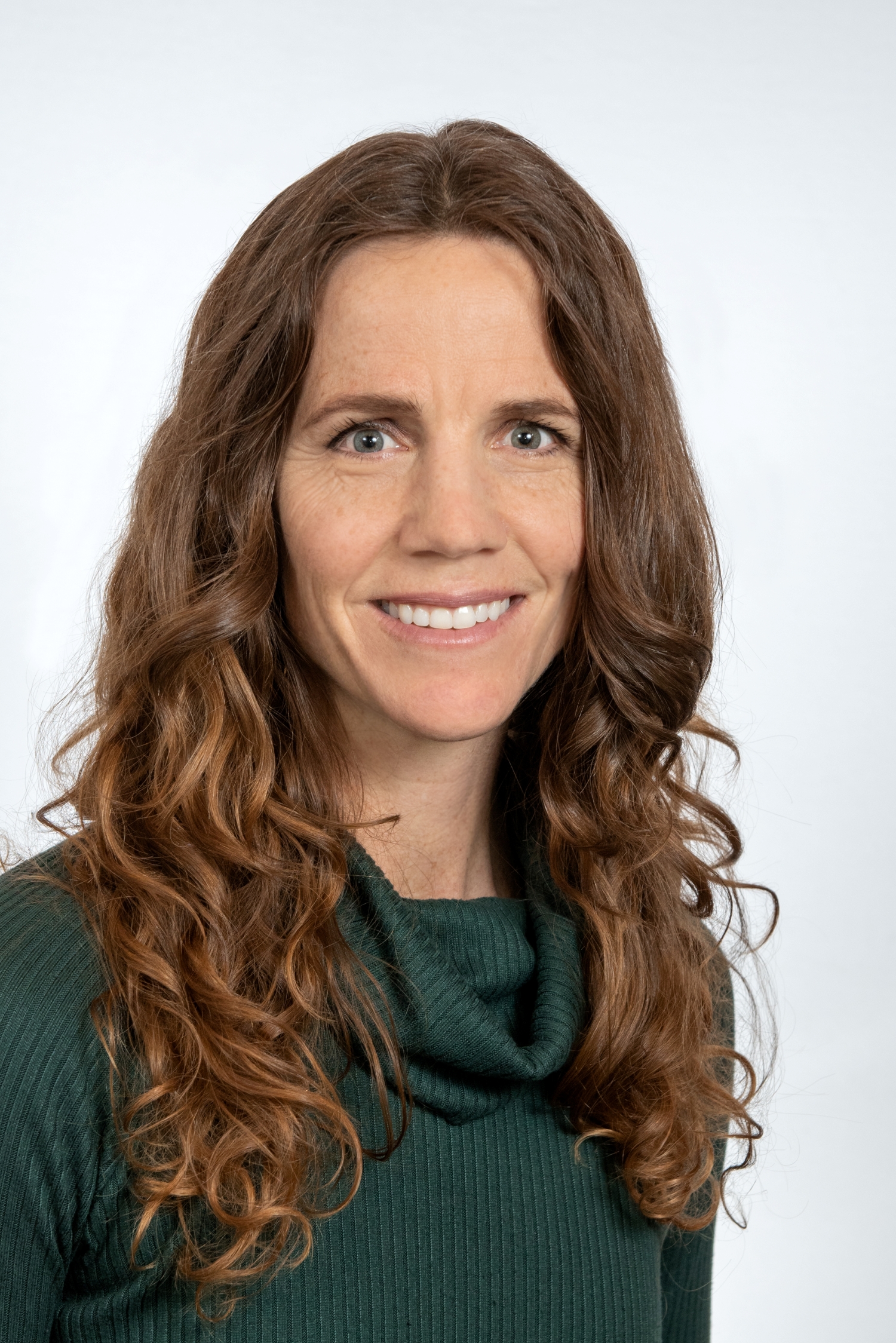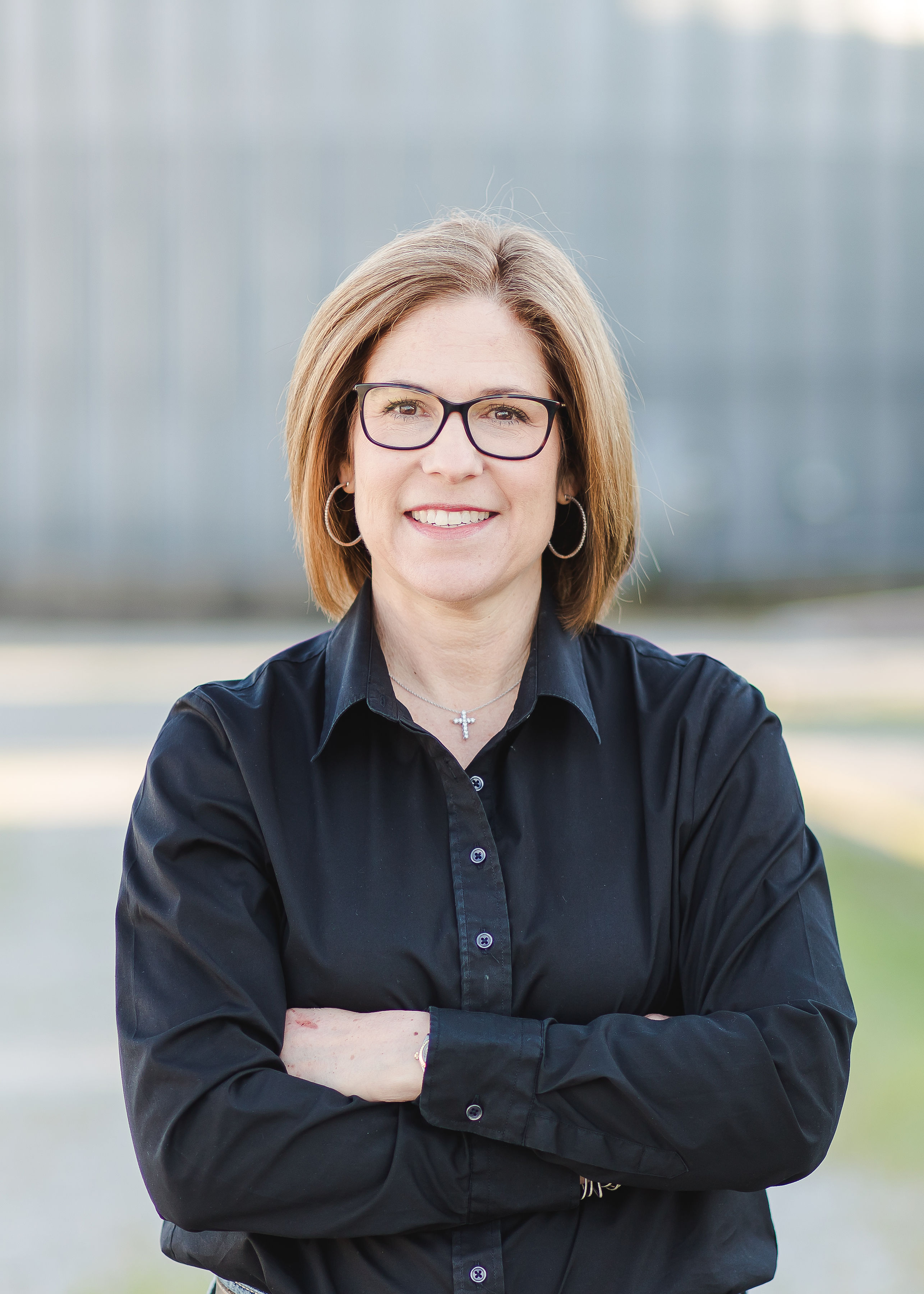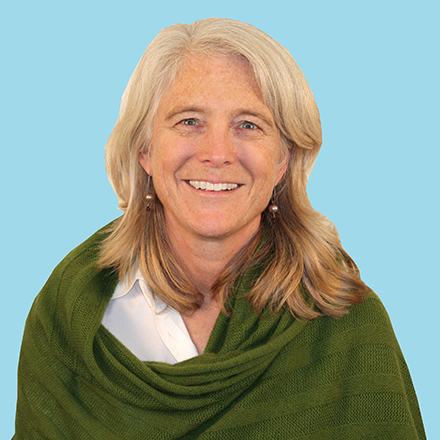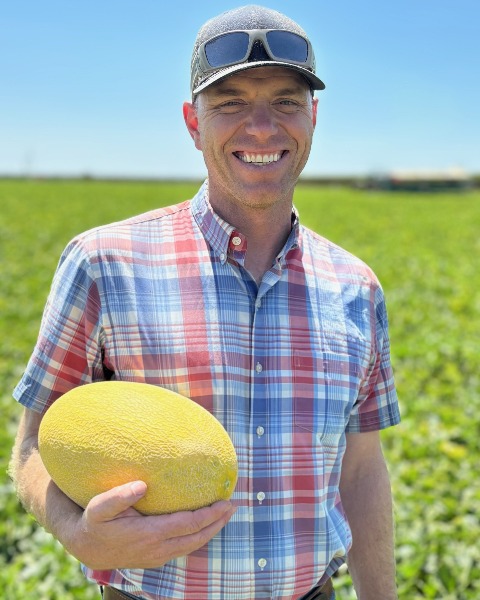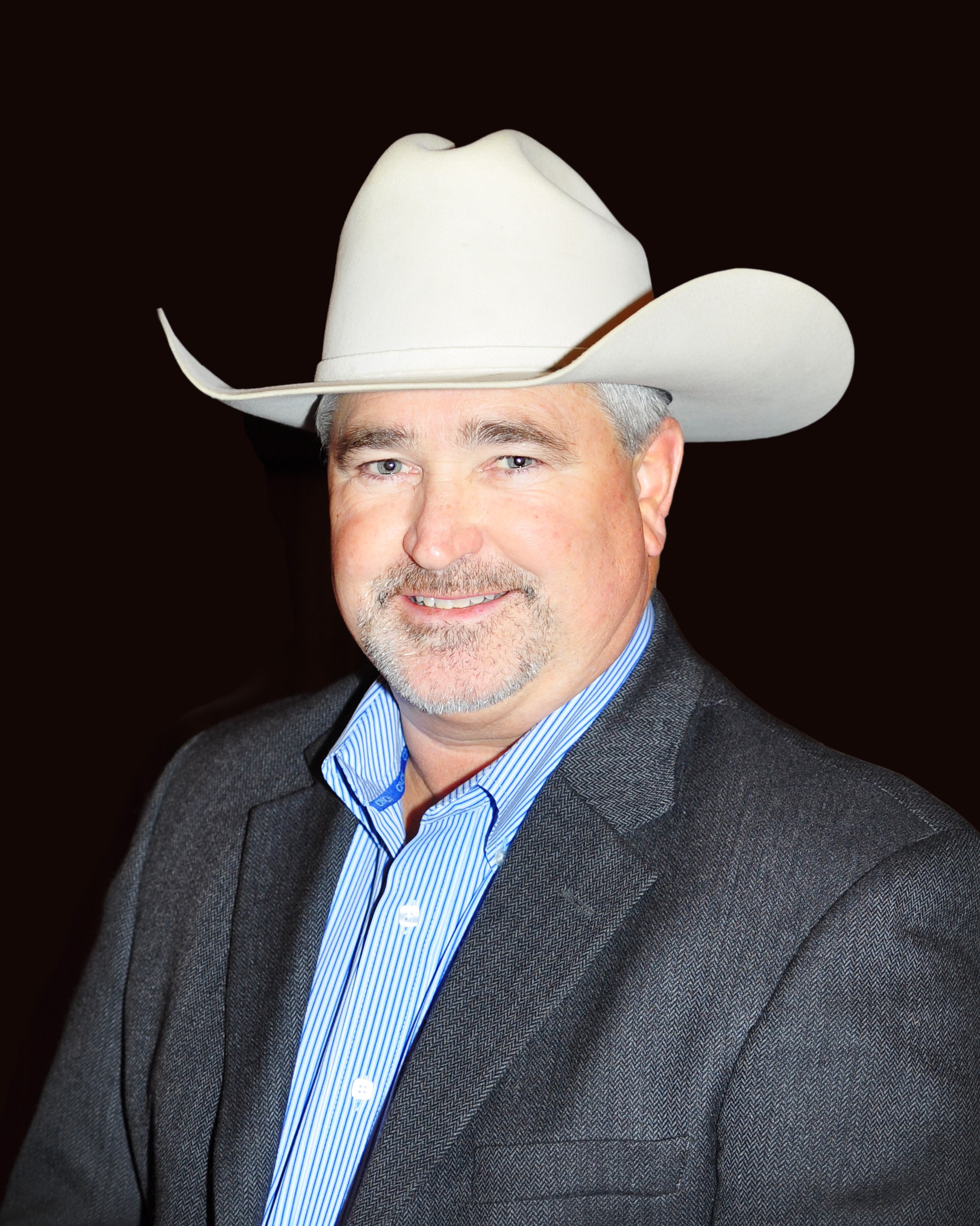Anaheim Marriott
700 W. Convention Way
Anaheim, CA
November 19 - 20
Join us for two full days of engaging sessions, expert insights, and valuable connections.
2025 Agenda
Uniting Agriculture for Resilient Outcomes
A resilient agricultural system is one that not only survives disruptions but also evolves to become better prepared for future challenges. We know that the challenges inherent to agriculture sustainability are complex and cannot be solved alone.
The 2025 Sustainable Agriculture Summit will bring together an array of industry perspectives to provide a multi-faceted dialogue reflecting the on-the-ground realities and interconnectedness of agriculture sustainability. Learn from world-class experts and from fellow attendees as you explore new ideas and approaches to advance our shared action toward a more sustainable and resilient U.S. food system.
*Listed in Mountain Standard Time
Designing Impactful, Rigorous Beef Sustainability Programs That Scale
Driving meaningful climate action requires solutions that work for both ranchers and companies. This session will feature real-world examples of beef scope 3 reduction programs and a candid discussion with a participating rancher and corporate sustainability leaders about the hurdles, partnerships, and opportunities shaping the future of beef’s role in climate strategies. Attendees will leave with practical insights, and a clear understanding of how beef can strengthen their sustainability roadmaps
Sponsored by:

Economic realities play a pivotal role in the ability to advance sustainability across the food and agriculture value chain. This session offers a snapshot of the key factors and global forces shaping today’s agricultural economy and examines their influence on sustainability decisions, investments, and opportunities for producers, agribusinesses, and the food system as a whole.
Sustainability on the farm is only achievable when it’s also financially viable. As new finance models emerge — from blended finance options to sustainability linked loans — to support sustainability practices, producers are weighing the real-world impact on their operations. In this session, farmers share their honest perspectives on what’s working, what’s falling short, and how financial tools must evolve to ensure that sustainability is not just a short-term environmental goal but a lasting economic reality for producers.
Registered attendees can view breakout speakers via the conference app
Food in Summer, Fuel in Winter: Making Cover Crops Pay (Premier Sponsor: Corteva)
This session explores how cover crops, particularly winter oilseeds like canola, can double as renewable energy feedstocks — supporting both soil health and the global biofuels market. Experts will unpack how this dual-purpose approach an generate off-season income for farmers while addressing sustainability targets across the value chain. Attendees will learn about feedstock potential, policy incentives, and practical on-farm strategies that make this model viable.
Forging the Future: Public-Private Livestock Partnerships in the Wake of Funding Shifts
As the landscape of agricultural and environmental funding evolves, the role of public-private partnerships becomes increasingly vital in advancing sustainability goals. This panel will delve deeply into the dynamics and how each sector views unique partnerships, exploring how they can leverage shifted dollars and redefine the economic flows from farm-level operations to food companies. We'll discuss how collaborative solutions across the supply chain, involving key stakeholders including solution providers, CPG companies, farmers, NGO’s, financial institutions and federal entities can scale sustainable practices while benefiting each sector.
From Insights to Impact: What You Need to Know About Next Generation Decision Makers
To safeguard progress, sustainability sector leaders must not only engage with today’s agriculture leaders but also start building connections with the next generation of decision-makers. But where to start? The Farm Journal’s Intelligence & Influence division has recently conducted a cross-sector deep dive into the operational, psychological, behavioral, and attitudinal data shaping the views of “NextGen” farmers and ranchers to bust myths and assumptions and bring forward crucial business intelligence. Hear from the data science, ranch, and organization perspectives around the findings. Leave with a clearer view of the horizon when it comes to tomorrow’s farmers, ranchers, and agribusiness decision-makers.
Staying Ahead: Preparing for Evolving GHG Quantification Frameworks (Partner Sponsor: Field to Market)
GHG emission quantification frameworks are continuously evolving, challenging sustainable agriculture practitioners to maintain credible footprinting systems. Join us as expert speakers from Field to Market, GHG Protocol, and Grow Well Consulting discuss strategic approaches to building adaptable GHG quantification systems. Topics will include current methodology trends, design principles for resilient frameworks, and practical strategies for navigating uncertainty while maintaining consistency. During this session, you will also explore how Field to Market is planning to future proof the Fieldprint Platform® for emerging standards. Attendees will learn actionable recommendations for preparing their organizations to evolve alongside changing measurement standards while preserving program integrity.
Sustainability Speaks: Why Sharing Your Story Is Essential to Agriculture’s Climate Future
Agriculture sits at the nexus of climate impact and climate solution. Every step from soil to shelf offers a chance to improve environmental outcomes, but those efforts are only as powerful as the stories we tell. With climate action is under a global microscope, sustainable agriculture must not only innovate, it must communicate. This panel will explore the powerful role storytelling plays in elevating sustainable practices across the value chain. Whether you're growing fiber, milking cows, packaging products, influencing policy, or shaping future generations, this session will demonstrate why your sustainability journey needs to be front and center.
Navigating Land Use Change: Decision-Support Tools for Risk and Resilience
This interactive workshop will equip participants with practical tools and collaborative strategies for using land use change (LUC) maps and definitions to strengthen the value of U.S. commodities and assess risk across agricultural supply chains. Building on outputs from the Land Use Change Initiative (LUCI), attendees will explore sector-specific examples, test new mapping tools and co-develop actions to address gaps in definitions and LUC assessments. The workshop will educate on best practices for LUC mapping and definitions and will engage participants in large and small group sessions, interactive polls and prioritization activities that foster alignment across commodities and value chains.
Registered attendees can view breakout speakers via the conference app
California Farmers, Dairies Collaborate to Reduce Regulatory Pressure, Ensure Safe Drinking Water
A global agricultural powerhouse, California produces hundreds of crops, including two-thirds of the nation’s nuts and fruits, a third of its vegetables and a fifth of its milk. But the state shares a challenge common across the world’s most productive farming regions – groundwater impacts from many decades of fertilizer use. Today, Central Valley farmers are leading a monumental effort to turn that around. Their innovative approach provides free well testing and safe drinking water to thousands of families. In return, farmers and others get limited regulatory relief, allowing them much-needed time to achieve improved practices while remaining economically sustainable.
How Data-Driven Animal Diets Can Advance Food Industry Sustainability
Manufactured animal feeds are fundamental to the productivity of animal production systems but also represent a significant proportion of the cost and footprint of meat, milk, eggs and farmed seafood. Feed-related emissions are also major components of Scope 3 for food and pet food companies and retailers, and relevant for downstream sustainability efforts. This session will explore advances in formulation and life cycle assessment (LCA) based environmental footprinting platforms to help the industry understand and reduce its impact, while maintaining efficiency. We will describe optimization techniques balancing footprint minimization with cost and invite discussion of feed optimization’s role in meeting environmental objectives.
New Ways of Linking Farm Finance, Crop Insurance and New Crops
The shifting agricultural landscape offers farmers opportunities, but new crops and rotations may be unfamiliar, undercapitalized, or lacking in insurance safety nets. Current financial and risk management systems – especially federally backed crop insurance – do not always support these new ventures, making it harder for producers to meet emerging demand with confidence. This session will rethink how shifting trade dynamics and domestic market gaps are creating demand for new crops; how we connect crop insurance, finance, and cropping systems, including policy and data barriers; and innovative models of risk-sharing that incentivize crop diversity and resilience.
Resilient, Sustainable Protein & Circular Economy: US-RSPE Framework and NARA’s Real-World Impact (Partner Sponsor: U.S. Poultry & Egg Association)
Explore how the U.S. poultry, egg, and rendering sectors are supporting a more resilient supply chain and uniting sectors while advancing sustainability through data-driven frameworks and circular‑economy practices. US‑RSPE’s multi‑stakeholder Sustainability Framework offers comprehensive metrics across bird welfare, planet, and people. NARA exemplifies this through initiatives in food‑waste diversion, green energy, water recovery, and industry‑wide life‑cycle assessment. Join industry experts to discover practical tools, real‑world data, and collaborative strategies shaping a sustainable protein future.
Sustainable Packaging for Fresh Produce: Industry Alliance and Roadmap
Packaging plays a critical role in enabling the sustainability of fresh produce supply chains. From ensuring food safety and minimizing food waste to mitigating material waste, optimal sustainable packaging for fresh produce must meet all functionality needs while maintaining continuous innovation, economics, and improvement towards increasingly sustainable outcomes. Many nontraditional fresh produce packaging alternatives presented do not consistently provide the technical functionality and are not reliably accessible to the fresh produce industry. This session will review a roadmap developed by the Sustainable Produce Packaging Alignment (SPPA) for the fresh produce industry and retail partners in North America.
Talk Dollars and Dirt: Using Economic Tools to Support Soil Health (Part 1)
This workshop has two parts: Part 2 runs from 3:30-4:30 p.m. Please plan to attend both sessions for the full benefit.
Gain confidence using an online Predictive Soil Health Economic Calculator tool, 2-page soil health economic case studies, 2-page guides summarizing row crop and grazing economic literature, and additional outreach and educational resources to engage farmers in meaningful conversations about the economic costs and benefits of regenerative soil health practices.
Registered attendees can view breakout speakers via the conference app
Collaborative Decarbonization in Ag Supply Chains: Turning Shared Emissions into Shared Opportunity
This panel explains how Arva’s Scope Sharing model, a collaborative approach to decarbonizing shared supply chains, brings farmer co-operatives, processors and retailers together; transforming stranded assets into opportunities for collaboration and scaling regen ag investments to reach more farmers and more acres. Moderated by Arva, members from Nestlé Purina and PepsiCo, as well as Bartlett and Kellanova, will share how their innovative partnerships help decarbonize their procurement of rice and wheat, respectively. These partnerships illustrate how both horizontal and vertical scope-sharing projects work in practice.
Crisis to Credibility: Communicating Sustainability When It Matters Most
Sustainability claims can invite scrutiny — from media, advocacy groups, and the public. Are you ready to respond when your practices are questioned? This session explores how food and ag stakeholders can proactively communicate their sustainability efforts — and protect trust during high-pressure moments. A panel of experts will share lessons from real-world scenarios where transparency, messaging, and rapid response made the difference. Attendees will leave with tools to build stronger internal alignment, anticipate communication pitfalls, and ensure their sustainability story holds up under the spotlight.
Impact of Farm Management Practices within a Watershed through Ecosystem Services Valuation
Lake Winnipeg, the world's eleventh-largest freshwater lake and Canada's sixth-largest, encompasses a watershed that extends across four Canadian provinces and four U.S. states. Water can be the lens to drive value to the farm through collective action and collaboration in a landscape-based approach. Valuation of outcomes can support collaborators in reporting impacts made from contributions in a sourcing, supply, or sales region as part of their value chain. Throughout this session, panelists will use the Lake Winnipeg Basin Project as a case study to illustrate this and highlight how similar nature-based solutions support stakeholders in driving positive environmental outcomes.
Leveraging Corporate, Farmer, and Conservation Collaboration to Expand Regenerative Practices
Although there has been effort to improve support and resources for implementing regenerative agriculture practices, adoption by farmers is hindered due to perceived and real challenges they encounter. Farmer-led groups are key to engaging more farmers to adopt these practices that will help improve soil health and water quality while addressing the farmers’ bottom line. This session will explore the importance of collaboration among farmers, local partners, and corporate partners while using scientific approaches and the learned experiences of a farmer-led group to reach collective goals and demonstrate improvements to local streams and lakes as a result.
What Dairy’s GHG Roadmap Reveals for a Sustainable Food System Future (Partner Sponsor: Innovation Center for U.S. Dairy)
Discover how U.S. dairy is taking a science-based approach to modeling future emissions and developing mitigation strategies, including implications for the broader agriculture sector. This session previews early insights from the industry’s GHG Strategic Roadmap — an upcoming report grounded in LCA data and scenario modeling — that explores the most impactful opportunities for action across the dairy value chain. Hear from experts on high-impact levers like feed and energy production, practice change implementation, financing emissions reduction practices, and research and development, while exploring how collaboration across the agriculture sector is essential for success. Walk away with actionable insights and ideas for partnerships that extend beyond dairy and can accelerate progress towards sustainable food systems across the agriculture sector.
Talk Dollars and Dirt: Using Economic Tools to Support Soil Health (Part 2)
This workshop has two parts: Part 1 runs from 1:45-2:45 p.m. You must attend Part 1 in order to attend Part 2.
Gain confidence using an online Predictive Soil Health Economic Calculator tool, 2-page soil health economic case studies, 2-page guides summarizing row crop and grazing economic literature, and additional outreach and educational resources to engage farmers in meaningful conversations about the economic costs and benefits of regenerative soil health practices.
Growing Partnerships: How Food & Ag Companies and Ag Finance Can Co-Invest in Sustainable Agriculture
How can we make sustainability dollars go further and meet farmers’ needs most effectively? Food and agriculture companies and ag lenders have complementary business drivers and strengths that should motivate collaboration to advance sustainable agriculture. However, co-investment is limited due to a lack of understanding between these types of entities and underdeveloped models for collaboration. This breakfast session will fill this gap by building a common knowledge base including the business case for co-investment for companies and lenders, innovative financing models that can unlock additional dollars to scale the sustainable agriculture transition, and networking opportunities to build bridges in person.
Sponsored by:

Addressing the Gap Between Farmers and Sustainability Efforts
Sustainable progress will require the entire value chain. Farmers and brands must innovate together with an eye toward scalability that enables widespread adoption. U.S. Soy, in partnership with USDA, market insights leader DTN and other U.S. commodity groups, have developed the Farmers for Soil Health Marketplace. It directly connects consumer packaged goods companies with farmers practicing sustainable agriculture. Unlike any other program, these transparent transactions occur in real-time without an intermediary, reducing costs and establishing new grower relationships. The Marketplace platform includes supply shed mapping to help you find farmers who provide resilient commodities to your source regions and supports your company to meet its sustainability goals. This is the first direct-to-grower marketplace that offers incentives to farmers while also driving economic benefits and sourcing simplicity to businesses.
Sponsored by:

Explore the role of agriculture in global greenhouse gas emissions, the unique role of methane, and how producers and supply chains can leverage innovation to drive meaningful emission reductions. This fast-paced session with one of the industry’s leading air quality experts offers practical insights for working toward more sustainable food and agriculture systems.
As water challenges intensify, agriculture can lead the way in developing solutions that balance production, community needs, and environmental goals. Explore innovative, collaborative strategies being deployed in California, highlighting efforts that can be adapted to advance water stewardship and resiliency across regions and commodities nationwide.
In an era where data drives decisions, how can we ensure it also drives understanding and trust? This panel brings together experts from across the agricultural value chain to explore how to translate complex science and sustainability data into clear, compelling communications. Through real-world examples and diverse perspectives, panelists will share strategies for crafting messages that resonate with farmers, supply chain partners, and the public—bridging the gap between information and impact.
Registered attendees can view breakout speakers via the conference app
Animal Health: An Accessible Sustainability Tool for the Value Chain
As the U.S. dairy industry targets GHG neutrality by 2050, stakeholders are exploring practical strategies to achieve this goal. Animal health technologies, especially genomics (genetic selection), provide an opportunity to improve herd health, boost production efficiency, reduce carbon footprint, and support antibiotic stewardship regardless of operation size and location. Using genomics as a case example, this panel of industry stakeholders will explore how value-chain collaboration around such technologies can address individual stakeholder goals, as well as accelerate sustainability efforts across dairy and other protein sectors.
Climate Action in California’s Specialty Crops: On-the-Ground Solutions and Opportunities
Climate change is reshaping US agriculture, with California’s specialty crops at the forefront of both impacts and solutions. This interactive breakout session, co-hosted by a leading brands, growers and grower groups, will explore how California’s diverse specialty crop industries are proactively addressing climate change through mitigation, adaptation, and resilience strategies. Join us to gain actionable insights and be inspired by real-world examples of stakeholders creating a more sustainable, thriving future for agriculture in the face of climate change.
Expert Panel on Soil Enrichment Carbon Offset Projects
Hear from experts from The Climate Action Reserve, Indigo Ag, Kateri Carbon, and Aster Global that have stewarded several of the largest agriculture-based greenhouse gas (GHG) projects in the USA, who will share in-depth knowledge on Grassland and Soil Enrichment Protocols (SEP), projects, and verifications. Ina decarbonizing world, farmers, ranchers, landowners, and other agricultural value chain partners can earn revenue from soil organic carbon offset projects that generate credits for sale. Understanding the lifecycle of a carbon offset project and players involved is key to their success: project registries, project developers, and verification and validation bodies.
Trusted Advisors at the Center: Aligning Corporate Support and Agronomy to Scale Farmer Resilience
Trusted advisors play a vital role in helping producers navigate the complexities of conservation implementation and financial assistance programs. This session explores how placing advisors at the center can align program flexibility with on-the-ground agronomic realities. We’ll discuss strategies for integrating MMRV, crop and practice diversity, and whole-farm planning to ensure support systems that are both practical and effective. The panel discussion will be based on key learnings from the North Dakota Trusted Advisor Partnership.
Uniting a Supply Chain: A Collaborative Approach to Guide Research and Innovation (Partner Sponsor: U.S. Roundtable for Sustainable Beef)
Tracking progress toward sustainability goals set within agricultural supply chains can be challenging and, sometimes, difficult to ascertain due to a dearth of research. Additionally, to achieve real impact, producers must be at the heart of every effort; actions taken or innovations developed must be practical. Learn how USRSB, with support from FFAR, convened industry experts via public virtual focus groups and an in-person workshop including 80 experts from 50 organizations, to create and begin putting into action a strategic, science-based roadmap to guide research and innovation to support achieving industry-wide sustainability goals while ensuring producers thrive for generations.
We Are What We Measure: Tracking Agriculture's Impacts on Farmers, Ranchers, and Workers
Regenerative agriculture has gained momentum, with measurable progress towards soil health, ecosystem, and climate goals. But are we measuring what matters? Farmers, ranchers, farmworkers, and rural communities represent the backbone of our agriculture system; however, most regenerative certifications and standards focus solely on ecological outcomes. Measuring agriculture’s impacts on farmer rights, livelihoods and well-being represents an opportunity to re-align and build resilient, people-centered supply chains. Join this hands-on, interactive workshop to learn why social impact metrics are important, how you can implement them, and build community around tangible shared goals for a more just and regenerative agriculture system.
Join small groups of fellow attendees for facilitated discussions a particular topic or issue in an informal collaborative setting.
- Beyond Cover Crops & No Till: Unlocking Regional Tools to Drive On-Farm Climate Outcomes (Anthesis Group)
- Collaborating Across Supply Chains to Drive Credible and Scalable Scope 3 Decarbonization (Arva)
- Creating Effective Incentives for Farmers and Ranchers (PepsiCo)
- From Pilot to Scale-up: Accelerating the Rollout of Regenerative Food Projects (Biospheres Group)
- From Practice to Proof: Measuring Regenerative Agriculture’s Implications for Soil Health and Productivity (Corteva)
- How Low Can Corn Go? Emerging Innovations/Opportunities for GHG Reductions in Corn Grain and Silage (Bayer Crop Science)
- Insights and Strategies for Reducing Water Footprints in Agricultural Supply Chains (Indigo Ag)
- Making Welfare Count: Embedding Animal Care in Real Sustainability Strategy (Center for the Optimization Of Poultry)
- Moving Forward Together: Meeting Producer Interest in Conservation Financial & Technical Assistance (Environmental Defense Fund)
- Moving from Secondary to Primary Data in Scope 3 Accounting in Regen Ag Projects (ADM)
- Pest Management Pros: Exploring the Vital Role of Pest Control Advisers in Crop Production (Syngenta)
- Soil Sampling in Support of Regenerative Agriculture Calculation Models (ADM)
- Sustainable Practices to Build Resiliency (BioFiltro)
- The Value of Sustainability Knowledge, Networking, and Collaboration (Potato Sustainability Alliance)
- Tracking Pollinator Health Across Agri-Food Supply Chains: From Field Practices to Corporate Action (The Sustainability Consortium)
- What Will It Take for Biostimulants to Scale? Trust, ROI, and Biological Validation (Biome Makers)
Registered attendees can view breakout speakers via the conference app
Advancing Sustainability Through Biofuel Policy: Climate Action & Supply Chain Innovation
Biofuels are central to achieving sustainability across agriculture and transportation. This session explores how emerging policies, market incentives, and climate goals are transforming the role of renewable fuels. Attendees will gain insights into how producers and stakeholders across the value chain are adapting, innovating, and collaborating to meet environmental and economic objectives.
Barrel Strength Partnerships: The Kentucky Bourbon Industry’s Approach to On-Farm Sustainability
In 2024, Diageo, Suntory Global Spirits, Heaven Hill, Brown-Forman, and the Kentucky Distillers’ Association partnered with the Kentucky Corn Growers Association and the Precision Conservation Management(PCM) program to create a unified on-farm sustainability program. Rather than launching separate efforts, these distilleries aligned to reduce confusion for farmers and streamline conservation assistance across shared supply chains. This panel explores how simplicity for farmers became the foundation for a pre-competitive collaboration, demonstrating how industries can work together to scale sustainability, reduce duplication, and deliver real value to farmers.
Effluent to Asset: Funding Sustainable Water and Nutrient Management in Livestock Operations
Livestock farmers have always been under pressure to squeeze more benefits from their water resources and mitigate the effects of manure. This panel, comprised of farmers and other agricultural experts, will cover innovative water-saving strategies -- in particular, subsurface drip irrigation for manure effluent (SDI-E). SDI-E is gaining traction for its efficiency and environmental benefits. Discussion will also highlight how, in parallel, innovative public and private funding options are making upgrading systems a reality. The session will provide attendees with practical advice and a path to updating irrigation systems that align with both economic and environmental goals.
Leveraging Soil Health in Farm Financing
This session invites insights from farmers, appraisers, agricultural lenders, and farmland investors through a facilitated discussion with experts about identifying, developing, and implementing market drivers that leverage soil health in appraisals and farm loans. If investments in soil health can yield premium financial returns through innovative financial instruments, they may reduce barriers to adopting practices like no-till and cover crops.
Empowering the Next Generation: Teaching Sustainability Through Agriculture Education
How do you inspire the next generation of agricultural leaders to care about sustainability? By meeting them where they are: in the classroom, in the community, and in the field. This session will spotlight innovative, classroom-ready sustainability resources designed to engage middle and high school students in climate-smart agriculture, water conservation, soil health, and waste management. Attendees will gain insight into programs that are connecting the future workforce to real-world agricultural practices and industry needs. Participants will leave with actionable ideas for integrating sustainability into youth education and workforce development programs.
Projects to Products: Integrating Carbon Accounting for Supply Chains (Part 1)
This workshop has two parts: Part 2 runs from 2:30-3:30 p.m. Please plan to attend both sessions for the full benefit.
Farmers want premiums. Buyers want claims. Suppliers need a business case. The market is shifting to product-level carbon accounting, and the supply chain needs tools, methods, and strategies for translating on-farm resilience into product value. Participants are invited to explore solutions for supply chain accounting. Breakout groups will map supply chains, identify data sources, and apply logic to product allocation and project attribution. Participants will examine on-farm projects and construct accounting, reporting and investment strategies. Practical tools for sustainability, procurement, finance, and risk management teams leverage carbon accounting to develop low-carbon premiums, supply development, market differentiation, and customer reporting practices.
Registered attendees can view breakout speakers via the conference app
ET Data for All: Bridging Science and Practice for Sustainable Agricultural Water Use
This session will highlight how OpenET is being used to advance agriculture water conservation, drought resilience, and sustainability across geographies and commodities. Launched in 2021, OpenET is a publicly accessible online platform that provides transparent, actionable satellite-based evapotranspiration (ET) data at the field scale to over 10,000 users. It supports scalable, cost-effective solutions that can be used across agricultural regions and cropping systems. Panelists will share real-world examples of OpenET in action and offer insights for applying ET data to improve water management, inform decision-making, and help agriculture adapt to and thrive under future climate conditions.
Farm-Gate First: Grassroots Pathways to Marketable Nature Outcomes
Community-led leadership is not a “nice-to-have.” It is the engine that converts technical know-how into durable practice, aligns incentives up and down the value chain, and keeps financial, ecological, and social benefits rooted where they originate. A cross-sector panel shows how whole-farm, nature-based strategies leverage ecosystem-service markets to improve resilience, water security and biodiversity outcomes; while unlocking new revenue for growers and risk-reduction value for food companies, insurers, and municipalities.
Pest and Disease Threats Facing U.S. Agriculture and How Policy Can Help
Emerging pests and diseases represent one of the biggest challenges facing American agriculture and our global food systems today. Invasive species alone cost the U.S. as much as $120billion annually, according to U.S. Customs and Border Protection, demonstrating how threats to agriculture can harm the U.S. economy. This session, based on new research from Farm Journal Foundation, will break down the impacts of pest and disease risks, including on farm income, trade, biosecurity, and more. This session will also look at policy-driven solutions for economic and financial sustainability in the midst of these threats.
Producer Perspectives on On-farm Methane Mitigation
CSU AgNext in partnership with the Colorado Department of Agriculture conducted a survey of Colorado livestock producers to evaluate the feasibility of adoption of specific methane mitigation practices. In this session we will review these survey results and hear from a Colorado producer panel representing cow-calf, feedlot, lamb, and dairy sectors for a deeper dive into their perspectives on specific methane mitigation strategies to better understand what is critical to address to aid in adoption. The session will highlight the importance of stakeholder-informed approaches and provide insights to guide policy, research, and industry initiatives aimed at reducing methane emissions.
Smart Bets: Why Participatory Ag Programs Deserve Scaled Investment
This breakout explores how participatory, data-driven approaches like the TAPS program can scale impact in sustainable water management. Through a diverse panel of producers, researchers, and industry experts, attendees will learn how collaborative learning drives better outcomes, from farm decisions to supply chain resilience. Practical insights will highlight how social learning fosters innovation, trust, and adaptability — making it a smart bet for funders and practitioners aiming to advance regenerative agriculture.
Projects to Products: Integrating Carbon Accounting for Supply Chains (Part 2)
This workshop has two parts: Part 1 runs from 1:00-2:00 p.m. You must attend Part 1 in order to attend Part 2.
Farmers want premiums. Buyers want claims. Suppliers need a business case. The market is shifting to product-level carbon accounting, and the supply chain needs tools, methods, and strategies for translating on-farm resilience into product value. Participants are invited to explore solutions for supply chain accounting. Breakout groups will map supply chains, identify data sources, and apply logic to product allocation and project attribution. Participants will examine on-farm projects and construct accounting, reporting and investment strategies. Practical tools for sustainability, procurement, finance, and risk management teams leverage carbon accounting to develop low-carbon premiums, supply development, market differentiation, and customer reporting practices.
Agriculture production can vary greatly from farm to farm and region to region. In this session, producers from different commodity sectors help the audience better understand what it’s like to farm in the American West. They’ll share practices and challenges that are unique to the region, discuss the impact these regional nuances can have on agricultural sustainability, and reflect on what’s needed for value chain partnerships to deliver progress on shared priorities.
Futurist researcher Quinault (Quin) Childs will introduce Strategic Foresight, a framework for making sense of complex change through signals observable in the world today. Explore how identifying small, emerging changes in technology, business, consumer dynamics, and society can help you prepare resilient strategies for the future, before it happens. This session will leave you with simple, lightweight tools for integrating strategic foresight into your everyday thinking about more sustainable, human-centered futures.






